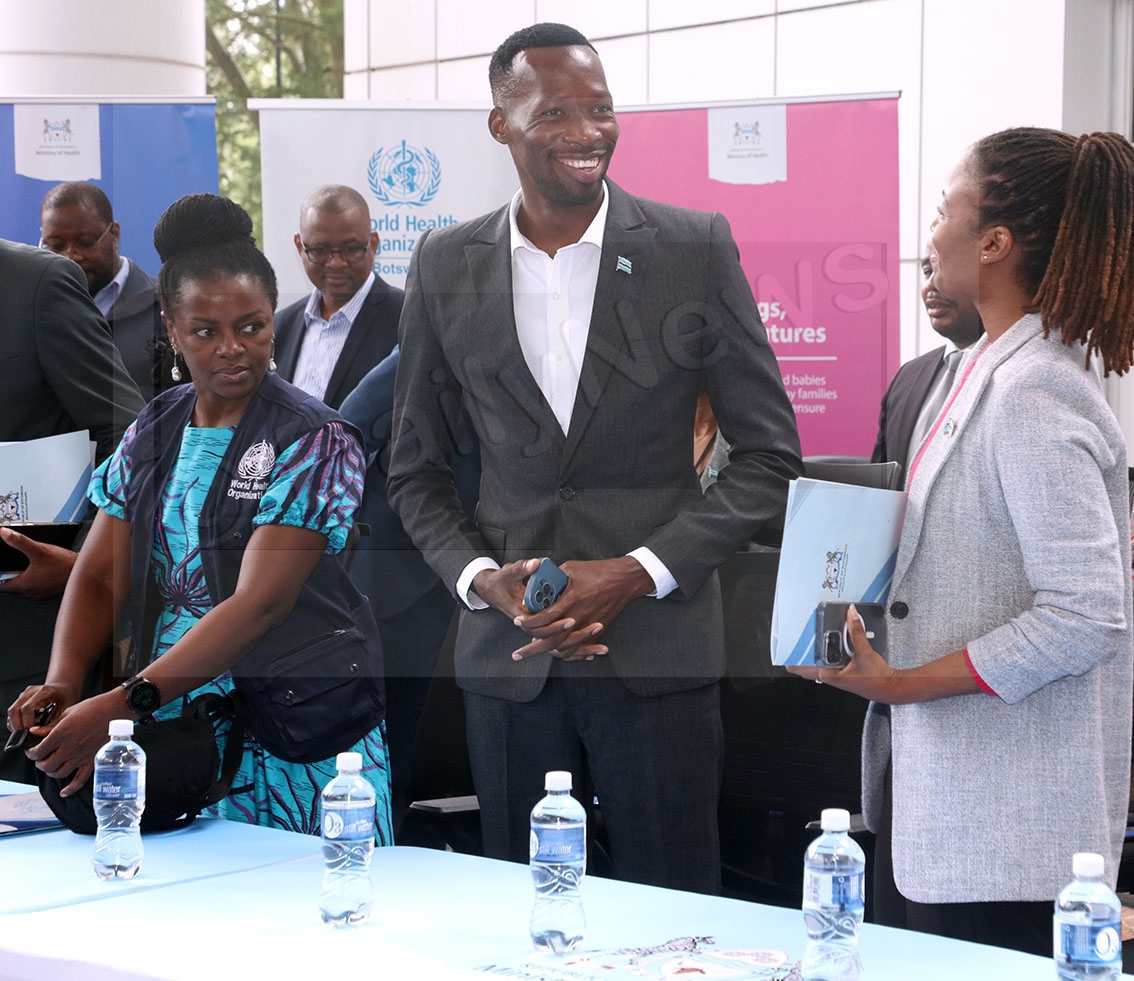Maternal and newborn deaths remain critical
08 Apr 2025
Despite significant progress in recent decades, maternal and newborn deaths continue to present a severe challenge across Africa.
This was highlighted by the World Health Organisation (WHO) officer-in-charge, Dr Julian Bataringaya, during the World Health Day commemoration in Gaborone on Monday.
Dr Bataringaya emphasised that nearly 300 000 women die globally each year due to pregnancy or childbirth-related complications.
She pointed out that 2.3 million babies die within the first month of life, and 1.9 million are stillborn.
She highlighted that the tragic losses were disproportionately concentrated in low-income countries and fragile settings, primarily in the WHO African Region.
“These are not just numbers; they represent real lives lost, families shattered, and futures cut short,” she said.
Dr Bataringaya noted that while maternal and newborn deaths remain a critical challenge, there were signs of progress. “Countries are making strides, and there is hope in reducing newborn deaths, efforts to train health workers, strengthen maternal and newborn care services, and harness digital innovations to improve access to healthcare,” she said.
However, she cautioned that significant challenges persist, including underfunded health systems, infrastructure gaps, health worker shortages, conflicts, emergencies, and climate-related shocks.
“When services are disrupted, women and children are the worst impacted,” Dr Bataringaya explained.
She stressed that the importance of addressing those issues has become even more urgent as cuts to global health and development aid threaten to undermine essential support systems.
She said many programmes delivering crucial health services have already been halted, and medical research targeting pregnant and breastfeeding women and children was facing significant setbacks.
“These disruptions place the most vulnerable at even greater risk and threaten to undo years of hard-won progress,” she added.
To address challenges, Dr Bataringaya emphasised the need for focused investment and multisectoral collaboration.
She called for increased investment in high-impact maternal and newborn health services, including antenatal care, skilled birth attendance, emergency obstetrics, and postnatal care.
“Investing in maternal and newborn health delivers major returns, it results in healthier families, stronger societies, and sustainable economic growth,” she said.
Dr Bataringaya reaffirmed the WHO’s commitment to ensuring that every mother and baby in Africa has a healthy beginning and a hopeful future, with emphasis on both immediate action and long-term strategies to ensure the survival and well-being of women and children across the continent. ENDS
Source : BOPA
Author : Lesedi Thatayamodimo
Location : Gaborone
Event : World Health Day Commemoration
Date : 08 Apr 2025







